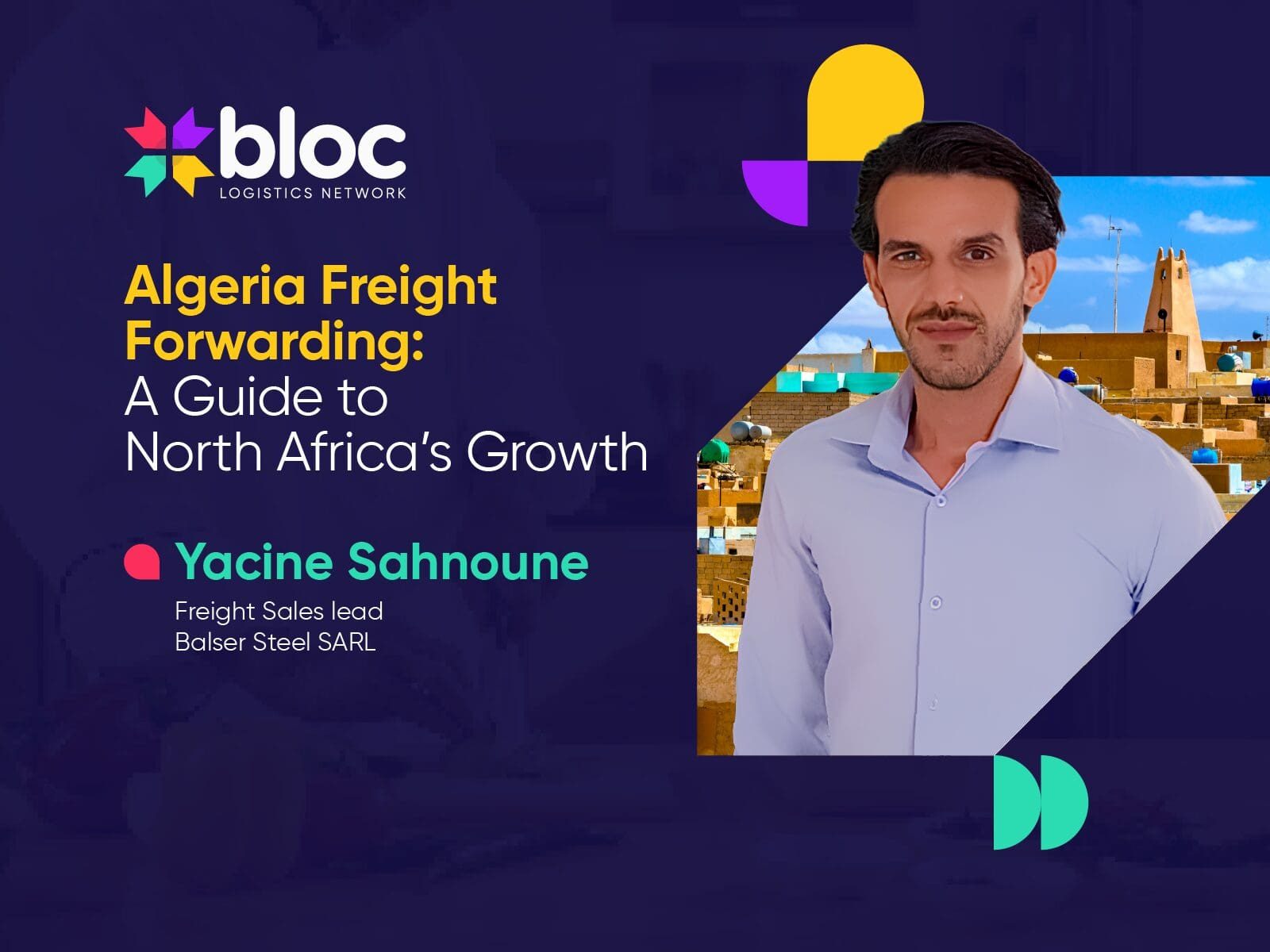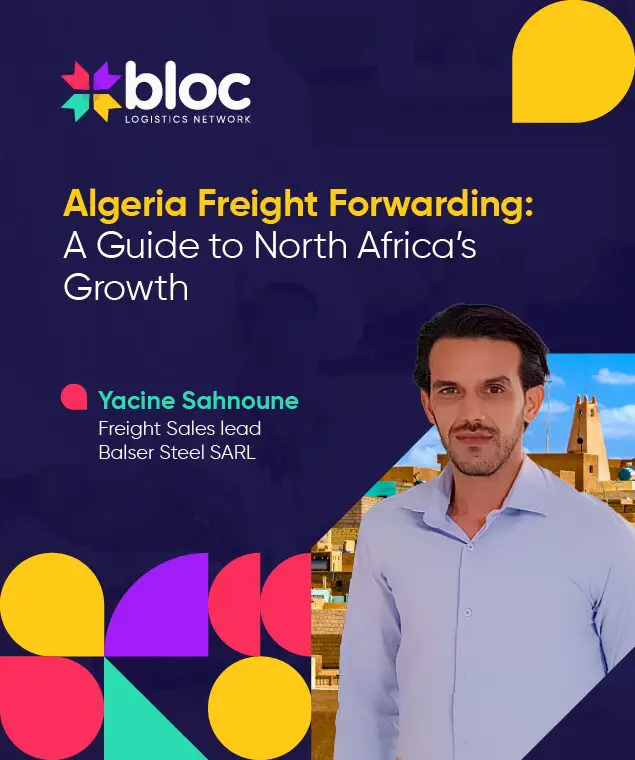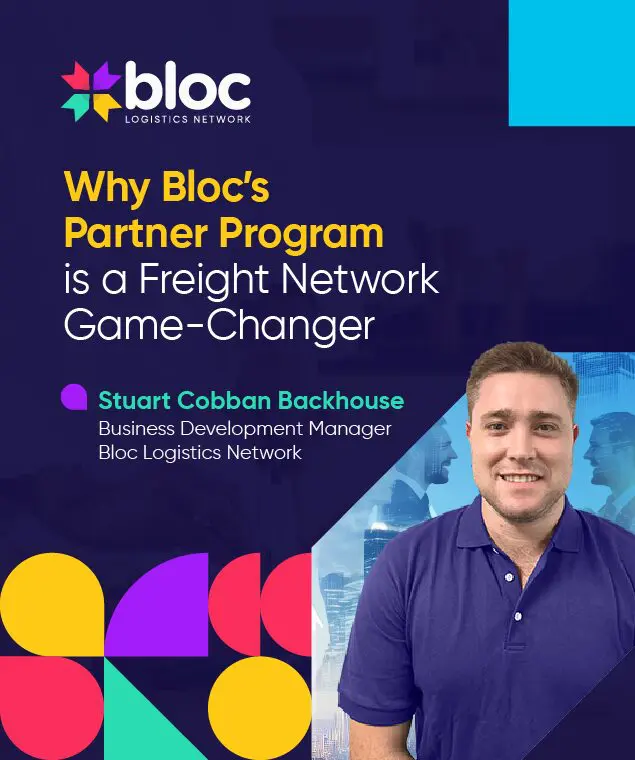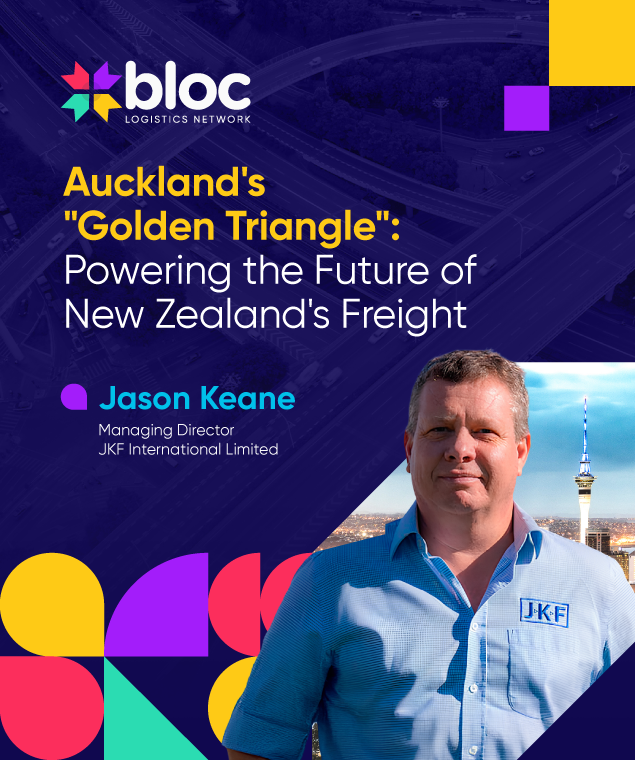By Yacine Sahnoune, Freight Sales lead at Balser Steel SARL
Algeria, a nation of vast landscapes and immense economic potential, stands at a critical juncture. With the longest Mediterranean coastline in North Africa and acting as a natural gateway to the sprawling markets of the Sahel and Sub-Saharan Africa, its strategic importance cannot be overstated. For decades, the global logistics industry has viewed Algeria through the lens of its formidable oil and gas sector.
However, a new chapter is being written, one of economic diversification, massive infrastructure investment, and a determined push to become a pivotal logistics hub for the entire continent.

Navigating this evolving landscape requires more than just a pin on a map; it demands deep, on-the-ground expertise. The opportunities are significant, but so are the unique operational challenges. To shed light on the realities of freight forwarding in this dynamic market, we turn to a local leader and expert, Yacine of Balser Steel LLC, Bloc Logistics Network’s trusted partner in Algiers. With years of experience managing complex shipments in and out of the country, Yacine provides an unparalleled perspective on what it takes to succeed in Algeria.
“Many international forwarders see Algeria as a complex market, and they aren’t wrong,” Yacine begins. “But complexity is just another word for opportunity if you have the right knowledge and partnerships. The Algeria of today is not the Algeria of ten years ago. The ambition is palpable, and the government is actively investing to smooth the path for trade. We are witnessing the foundations of a future logistics giant being laid right now.”
This blog will serve as your comprehensive guide to understanding the Algerian logistics sector, exploring the key opportunities, dissecting the challenges, and looking ahead to the future trends that will define success in the region.
The Strategic Imperative: Algeria’s Geographic Advantage
To understand the future of Algerian logistics, one must first appreciate its geography. Algeria is not just another country on the African continent; it is a bridge.
- Proximity to Europe: The country’s northern coast lies just a short sea voyage from major European ports like Marseille, Valencia, and Genoa. This proximity makes it an ideal entry point for European goods destined for Africa and a prime location for nearshoring manufacturing operations.
- The Trans-Saharan Corridor: Algeria is the linchpin of the legendary Trans-Saharan Highway, an ambitious project connecting Algiers on the Mediterranean to Lagos, Nigeria, on the Atlantic. As sections of this mega-project are completed, it promises to revolutionize intra-African trade, slashing transit times and creating a reliable overland route through a region historically difficult to traverse.
- Major Port Infrastructure: Algeria has been pouring significant investment into its port infrastructure. The Port of Algiers remains the primary commercial gateway, but other ports like Oran, Skikda, Annaba, and Mostaganem are crucial for handling specific cargo types and serving regional economic zones. The development of the new deep-water Central Port of El Hamdania is a game-changer, designed to handle the largest container ships and position Algeria as a major transhipment hub for the Western Mediterranean.
“Our location is our greatest natural asset,” explains Yacine. “For cargo coming from Asia or the Americas, Algeria can serve as a more direct entry point into West and Central Africa than traditional European or Middle Eastern hubs. The key is integrating our ports with efficient inland logistics. This is the government’s top priority, and for us on the ground, connecting these dots for our clients is where we create real value.”
Free Trade Zones and Economic Diversification in Algeria: A Strategic Path Toward African Integration
Algeria is entering a pivotal phase in its economic evolution. With a strategic location bridging Europe, North Africa, and the Sahel, the country is increasingly focusing on free trade zones and economic diversification to position itself as a logistics and industrial hub for the continent.
Historically reliant on hydrocarbons, Algeria is now investing heavily in non-oil sectors, including agriculture, manufacturing, renewable energy, and logistics infrastructure. The development of free zones, such as the upcoming El Hamdania deep-water port, supports this transformation by attracting foreign investment, encouraging local production, and simplifying trade processes.
These zones offer tax incentives, streamlined customs procedures, and a favorable business climate. More importantly, they align with the African Continental Free Trade Area (AfCFTA), offering Algeria a unique opportunity to become a gateway to intra-African trade.
Unlocking Opportunities in a Diversifying Economy
For freight forwarders, the most exciting developments in Algeria are tied to its strategic plan for economic diversification away from hydrocarbon dependency. This shift is creating a surge in demand for sophisticated logistics solutions across various new sectors.
- Industrial and Automotive Manufacturing: Algeria is actively encouraging foreign investment in manufacturing, particularly in the automotive and home appliance sectors. This has led to the establishment of assembly plants and production facilities that require complex inbound logistics for parts (CKD/SKD – Completely Knocked Down/Semi Knocked Down) and efficient outbound logistics for finished goods, both for the domestic market and for export.
- Pharmaceuticals and Healthcare: With a large and growing population, the demand for pharmaceuticals and medical equipment is booming. The government is promoting local production to reduce import reliance. This creates a need for specialized logistics providers who can manage temperature-controlled supply chains (cold chain), handle sensitive products, and navigate the strict regulatory requirements of the healthcare sector.
- Agriculture and Food Products: From dates and olive oil in the north to new agricultural projects in the south, Algeria has significant potential as a food exporter. Developing this sector requires investment in refrigerated transport, modern warehousing, and efficient port processes to connect Algerian farms to international supermarket shelves.
- Project Cargo and Renewable Energy: The vast Sahara desert offers unparalleled potential for solar energy. As Algeria invests in massive solar power plants and other infrastructure projects (dams, highways, factories), the demand for project cargo specialists is immense. This involves transporting oversized, overweight, and high-value equipment, which requires meticulous planning, specialized equipment, and deep knowledge of local road networks and regulations.
“Every week, we see inquiries for new types of cargo,” Yacine notes. “One day it’s sensitive lab equipment for a new pharmaceutical plant, the next it’s a massive turbine for a power project in the desert. This is the new face of Algerian trade. It requires flexibility and a problem-solving mindset. The era of just moving standard containers is evolving into an era of tailored, high-value logistics services.”
On-the-Ground Challenges
While the opportunities are abundant, success in Algeria requires a clear-eyed understanding of its operational hurdles. This is where a seasoned local partner becomes indispensable.
- Customs and Bureaucracy: Algerian customs procedures are known for their rigor and complexity. Documentation must be flawless. Any discrepancy in the bill of lading, certificate of origin, commercial invoice, or packing list can lead to significant delays, fines, and even seizure of goods. The system is designed to be highly controlled, and navigating it requires precision and foresight.
“Bureaucracy is the challenge most frequently cited by our international partners,” Yacine admits. “Our response is always the same: preparation and communication. We work with shippers weeks in advance to ensure every single document is perfect before the cargo even leaves the origin port. We pre-clear shipments where possible and maintain constant communication with customs officials. The key is not to view customs as an obstacle, but as a critical process that must be managed with absolute professionalism.”
- Payment and Currency Controls: The Algerian Dinar (DZD) is a non-convertible currency, and foreign exchange is tightly regulated. Most international trade is conducted via documentary credit (Letter of Credit – L/C). This adds a layer of complexity and requires shippers and consignees to be well-versed in trade finance procedures. Delays in payment can hold up cargo release, making it crucial to have a partner who understands the financial ecosystem.
- Inland Infrastructure Gaps: While major arteries like the East-West Highway are excellent, the quality of infrastructure can vary significantly once you move off the main corridors. Last-mile delivery, especially to more remote industrial or agricultural zones, can be challenging. A local forwarder’s knowledge of the best routes, local transport providers, and potential bottlenecks is critical for reliable delivery schedules.
The Digital Shift and the Future of Algerian Logistics
Like the rest of the world, Algeria is undergoing a digital transformation. The government is actively implementing systems to modernize trade and customs processes. The customs authority’s IT system, SIGAD (Système d’Information et de Gestion Automatisée des Douanes), is central to this effort, aiming to create a single window for trade facilitation.
Port Community Systems are being rolled out to connect shipping lines, terminal operators, forwarders, and customs in a single digital environment, improving efficiency and transparency.
“Technology is transforming our operations,” says Yacine. “For our clients, it means greater visibility. They want to know where their cargo is at every moment, from the factory to the final destination. We are integrating tracking technologies and digital documentation platforms to provide this transparency. It builds trust and allows our clients to manage their supply chains more effectively. The forwarder who embraces technology in Algeria will have a significant competitive advantage.”
Looking ahead, the future of logistics in Algeria will be defined by several key trends:
- The AfCFTA Impact: The African Continental Free Trade Area (AfCFTA) is poised to be a major catalyst for intra-African trade. With its strategic location and the Trans-Saharan Highway, Algeria is perfectly positioned to become a primary hub for trade between Europe, North Africa, and the Sahel region.
- Rise of Specialized Logistics: As the economy diversifies, the demand for specialized logistics—cold chain, project cargo, hazardous materials handling, and high-security transport—will continue to grow.
- The Importance of Networks: For international companies, navigating Algeria is best done through a trusted network. A global network like Bloc Logistics Network provides the assurance of vetted, high-quality local partners like Balser Steel LLC, combining global reach with essential local expertise.
Your Gateway to Algeria
Algeria is a country on the move. It is a market of immense promise, driven by strategic vision and substantial investment. The path forward is one of transformation, where the challenges of today are paving the way for the opportunities of tomorrow.
Success in this landscape is not for the unprepared. It requires a partner who not only understands the complexities of customs regulations and the nuances of the local market but also shares the forward-looking vision of Algeria’s potential.
“Our message to our partners and clients is simple,” Yacine concludes. “Do not be intimidated by the challenges, but be prepared for them. With the right guidance, Algeria can be one of the most rewarding markets to operate in. We are here not just to move boxes, but to build bridges for your business into the heart of Africa. The future is being built here, and we invite you to build it with us.”

Article by Yacine Sahnoune
Freight Sales lead,
Balser Steel SARL, a member of Bloc Logistics Network
Balser Steel SARL is an Algerian freight forwarder based in Algiers, with agencies nationwide and a team combining local and international expertise. Offering sea and air freight, warehousing, customs clearance, cross trade, and project cargo, the company delivers end-to-end logistics solutions. With a strong partner network and focus on customer satisfaction, it supports clients across import, export, and specialized transport needs.
Bloc Logistics Network is a global platform that connects logistics professionals to share opportunities and collaborate without barriers. Bloc aims to level the playing field by creating an accessible, supportive environment where professionalism and collaboration drive real results. It serves as an ecosystem designed for mutual advancement, ensuring growth, efficiency, and success across the logistics industry.





